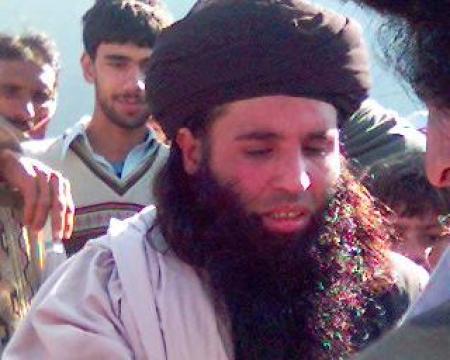
The Return of Shari’a Law to Pakistan’s Swat Region
Publication: Terrorism Monitor Volume: 7 Issue: 4
By:

After 16 months of bitter fighting between local Islamists and government forces in Pakistan’s Swat region, the central government has announced the implementation of a set of judicial regulations that will ensure that all legal cases in the region will be decided in accordance with Shari’a law. The “Nizam-e-Adl (Justice System) Regulations 2009” will apply in the Malakand division of the North-West Frontier Province (NWFP), which includes Swat and the adjoining Kohistan district. The decision to implement the new regulations follows the failure of a major military campaign, Operation Rah-e-Haq (True Path), to contain militants in the region (Geo TV, Islamabad, February 16). In response to the government’s decision, the region’s leading Islamist, Maulana Sufi Mohammad, has asked the local Taliban to bring a halt to all armed activities and open blocked roads to the military. He has also called for a prisoner exchange, the return of internally displaced persons and the resumption of government and security duties in the Swat region (Frontier Post, February 24).
NWFP Chief Minister Ameer Haider Hoti told a press conference that the new Shari’a-based judicial system will be implemented in the war-stricken area following the return of peace and the restoration of the writ of the government. He denied that the system was similar to the one introduced by the Taliban in Afghanistan (Dawn [Karachi], February 17). Hoti stated that the Nizam-e-Adl Regulations were approved by President Asif Ali Zardari, Prime Minister Yousaf Raza Gilani, and lawmakers from the Malakand region following deep consultation with representatives from the Tehrik-e-Nifaz-e-Shariat Mohammadi (TNSM- Movement for Enforcement of Islamic Law), a banned jihadi organization founded by Maulana Sufi Mohammad in 1988. Sufi Muhammad has long pressed for Islamic law to be restored in Swat. However, Pakistan’s Information Minister, Shahrbano “Sherry” Rahman, declared President Zardari has refused to sign the deal unless peace is restored in Swat, Malakand, and other troubled areas (Daily Times [Lahore], February 16). Rahman’s statement suggests that criticism from the Western media has unnerved the government of Pakistan over the deal with Taliban. There is a public impression in Pakistan that the government has lost its sovereignty to foreign pressure and cannot legislate freely, even on issues favored by its own people (The News [Islamabad], February 17).
Government Hopes for Islamic Law
The deal was welcomed by the local people of Malakand as well as the Taliban in Swat. The local Taliban announced a 10-day ceasefire as a good-will gesture (Aaj TV [Islamabad], February 16). However, the deal attracted severe criticism from some secular quarters of Pakistan and the Western media especially. It was alleged that such a deal with the Taliban would further strengthen the militants, giving them time to re-group and attack U.S.-led NATO forces across the border in Afghanistan. It is also feared that the Taliban in other parts of the country, especially the Federally Administered Tribal Areas (FATA), will make similar demands for the implementation of a Shari’a-based judicial system. Already, the spokesman of the Tehrik-e-Taliban Pakistan (TTP), Maulvi Omar, has requested a similar Islamic system for FATA and the whole of Pakistan (Daily Mashriq [Peshawar], February 17).
The government maintains that the new legal code aims only to bring peace and it will have none of the strict Islamic punishments involving whipping or the amputation of hands. Authorities insist this system will provide easy and speedy justice for the people, along with the right of appeal, which was missing from the Afghan Taliban justice system. Under this new system, all civil cases would be resolved within six months and criminal cases would be decided within a maximum of four months. The Nizam-e-Adl Regulation in Swat is, in fact, a continuation of the semi-Shari’a laws that were in force in the region until its merger with Pakistan in 1969. There was a previous attempt to introduce Nizam-e-Adl regulations in Malakand in 1994 (The News International, February 17; Pashtun Post, February 17).
Critics have asked one reoccuring question: if Nizam-e-Adl is going to be introduced by the government to respect the will of the local residents, then why were there military operations and bloodshed for more than a year in Swat? During this period, some 1,200 civilians were killed and more than 2,000 wounded. Due to the rising tensions in the Swat Valley, roughly 500,000 people out of the total population of 1.5 million have fled from the region to other places in Pakistan, many of them living in internal refugee camps.
Even before the new regulations come into force, the Taliban has already stamped Swat with its own version of Shari’a. Barber shops and music centers have been closed. Girls’ education is banned and more than 300 girls’ schools have been set ablaze. The Taliban have warned another 400 plus girls’ schools not to open.
The Battle for Shari’a
Maulana Fazlullah, also known as “Mullah Radio” after his fondness for incendiary FM radio broadcasts, is the leader of TNSM and the son-in-law of TNSM founder Maulana Sufi Mohammad. Fazlullah was inspired by Sufi Mohammad and studied the Wahhabi version of Islam at the latter’s madrassa based in Dir District. In the wake of the U.S. invasion of Afghanistan, Fazlullah joined an army of 10,000 young zealots under the leadership of Sufi Mohammad in crossing into Afghanistan to fight against U.S.-led coalition troops. On his return, Maulana Sufi Mohammad was arrested and imprisoned for illegally crossing into Afghanistan. Fazlullah escaped arrest on his return and shifted the TNSM headquarter from Dir to his Swat village of Imam Dherai, exerting his influence in the region by launching an illegal FM radio station in 2006. After that he started gaining control over important parts of Swat and now runs a state within a state (Daily Mashriq [Peshawar], November 12, 2008).
Fazlullah has issued fatwas (religious decrees) on a regular basis from his illegal FM radio against secular politicians and anyone serving in the military (Daily Khabrain [Islamabad], February 12). Once a chair-lift operator, Fazlullah (a.k.a. Fazal Hayat) is now a household name in Swat. His Shaheen Commando Force is armed with heavy weaponry and ready to carry out his orders to destroy schools, bomb police stations, and target military check-points. One of the busiest business squares in Mingora (Swat’s largest town) was known as the Grain Chowk (square), but is now known as “Khooni Chowk” (the Bloody Square) because it has become routine to see dead bodies hanging from poles in that place. The body of Pir Samiullah, a pro-government leader and religious rival to Fazlullah, was among those displayed in Swat’s public squares. Pir Samiullah was leading an anti-Taliban lashkar (tribal military force) when the Taliban killed him in a gunbattle and dispersed his lashkar. Several days after the battle the Taliban exhumed his body from the grave and hung it in the same public square where two of his key commanders were executed (Daily Ausaf [Muzzaffarabad], December 18, 2008; Dawn [Karachi], December 16, 2008).
The Legacy of a “Princely State”
Swat was once one of 175 “princely states” of the British-ruled Indian Empire. Control of Swat was turned over to the new Pakistani state in 1947 and the region was eventually annexed to Pakistan in 1969. People in this princely state are more used to personal rule than democracy or any other form of governance. It is believed that Sufi Muhammad and Fazlullah are exploiting this same psychological trait of the local people by developing a personality cult around themselves.
Until recently, Swat was a tourist destination for people all over the world. The beautiful Swat Valley, once known as “the Switzerland of Pakistan,” has now been transformed into a battleground between government forces and Fazlullah’s Shaheen Commandos, with their motto of “Shari’a ya Shahadat” (Islamic Laws or Martyrdom). So far, Maulana Fazlullah and his militant group have been winning. Since October 2007, they have carried out 165 bomb attacks, including 17 suicide attacks against the security forces, killing more than 190 troops. Due to fears of being killed or kidnapped, some 800 of the region’s 1,600 police officials either resigned from their jobs or have left on long leaves (Daily Jang [Lahore], February 10). Fazlullah took control of over 80 percent of the Swat area and summoned 41 prominent people, including ministers and parliamentarians, to appear before his Shari’a court to explain themselves. Despite belonging to the ruling parties, most of these politicians have fled the area (Dawn TV [Islamabad], January 30).
In the military’s three-phase Operation Rah-e-Haq, a force of 12,000 men was unable to subdue a band of 3000 TNSM hardliners. Despite the government’s claim that it has brought Swat under its control, Maulana Fazlullah continues to run a private army, along with parallel Shari’a courts, a Shura (consultative council) a Bait-ul-Maal (finance center), and, of course, his illegal FM radio station. The Pakistan government boasted several times during the operation that it had taken control of Swat, but every time it proved to be a mirage (Frontier Post [Peshawar], January 29). In the first phase of the military operation, the government claimed Swat would be cleared of all militants by mid-December 2007. The government, however, was forced to negotiate with Fazlullah in May 2008 after bloody fighting provided no gains for the government. Only two months later the peace deal fell apart and fighting erupted again in July 2008. The government hoped to defeat Fazlullah’s militia by September, but the politicians were to be disappointed once again. The third phase of Operation Rah-e-Haq was launched on January 26, 2009, with heavy strikes on Fazlullah’s positions, but it also met the same fate and ended up with another peace deal—this time incorporating the Nizam-e-Adl Regulations (Geo TV [Islamabad], February 17).
Conclusion
In Pakistan, the history of peace pacts with the Taliban is generally one of failure. In 1995, the first attempt was made to strike a deal with Maulana Sufi Mohammad for the imposition of Shari’a rule in Malakand region, but this effort failed. Now the issues are more complicated than in the past. Maulana Fazlullah, the young Taliban leader in Swat, is much tougher and more uncompromising than his aged father-in-law, Maulana Sufi Mohammad. The situation in Swat is as tense as ever, and mutual suspicions between the government and the militants are high. International pressure and regional uneasiness over the newly enacted Nizam-e-Adl regulations are likely to reduce the durability of this peace deal (The News International, February 17; Express TV [Lahore], February 16).





